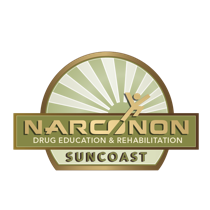Florida’s Law-and-Order Approach to Drugs: Not Enough
Florida is tough on drugs. To stop addiction, a stronger focus on rehabilitation is needed.

The debate surrounding punishment and rehabilitation has been alive for decades. Which is more important? Can you have one without the other? Each U.S. state takes a different approach to drug crime enforcement and providing state-funded rehabilitation programs. In some cases, partnerships with private providers are stressed, taking the process of returning past offenders and addicts back to society off the government’s hands.
Florida Has Some of the Strictest Drug Laws in the Country
When it comes to cracking down on drug offenses, Florida has a strictly “law-and-order” approach. It is often considered one of the toughest states on drug crimes. The state’s drug laws impose harsh mandatory minimum sentences, strict penalties for possession and trafficking, and enhanced punishment for drug-related offenses that occur near schools and public parks. With fentanyl being one of the deadliest drugs on the black market, and the most profitable for traffickers, Florida has poured over $20 million in funding into the effort to stop this scourge from taking lives.
The according to the CDC, are:
- West Virginia: 80.9 deaths per 100,000 total population
- District of Columbia: 64.3 deaths per 100,000 total population
- Tennessee: 56 deaths per 100,000 total population
- Delaware: 55.3 deaths per 100,000 total population
- Louisiana: 54.5 deaths per 100,000 total population
Florida sits at 35.2 per capita overdose deaths, putting it slightly higher than the U.S. average of 32.4. The relationship between enforcement and total deaths is tenuous at best. Tennessee has tough anti-drug laws with severe penalties for possession of even small amounts; the District of Columbia is one of the most lenient, with complete decriminalization of marijuana and a focus on diversion programs for first-time offenders caught with hard drugs. Delaware is a mix, tough on traffickers and less-so on addicts. All find themselves in the top five overdose states.
Florida Rehabilitation Programs Are Lacking
As the focus in addressing drug offenses has been punishment for decades, Florida lacks a comprehensive approach to providing rehabilitation for offenders. The objective would be to not only punish offenders for wrongdoing but also follow up with an effective rehabilitation method. This would make it possible for the individual to become a contributing member of society again. Some hurdles for the state to overcome include the following:
- High concentration on criminal punishment
- Lack of funding for rehabilitation efforts
- Limited treatment programs and limited access to those that do exist
- Lack of re-integration programs after former addicts are released from incarceration
Based on recent reports from the Florida Department of Correction, one in five offenders return to jail. While a specific drug offender data subset does not exist, related information indicates that addicts and former addicts have an even more difficult time trying not to revert.
The Necessity of Law, Order, and Rehabilitation
Like any state system, Florida’s government approach to drug-related crime isn’t perfect. It has its pros, potentially contributing to a lower overdose death rate than many other states. It also has cons, for example, the fact a person found in possession of small amounts of hard drugs is more likely to serve a prison sentence than receive help to end their dependency. “Law-and-order” has its place. The missing ingredient is effective rehabilitation. Rehabilitation that is not just applied sometimes, in some cases, when possible, but a comprehensive solution that closes the door on drug-related crime recidivism and future addiction for each addict encountered.
When You Need Rehabilitation: Narconon Suncoast is Here
If you or someone you care about is dependent on a legal or illegal substance, Narconon Suncoast is here to help. Rehabilitation is possible. Thousands have successfully completed the Narconon program and have gone on to live fulfilling lives. You can too. We are not here to judge; we are here to help. The first step is deciding you want to change. Call us for a free consultation and to learn more about our program today.
Source:
Florida recidivism rates report: https://fdc-media.ccplatform.net/content/download/25944/file/FDC%20Recidivism%20Report%202019%20Cohort%20July%202024.pdf


